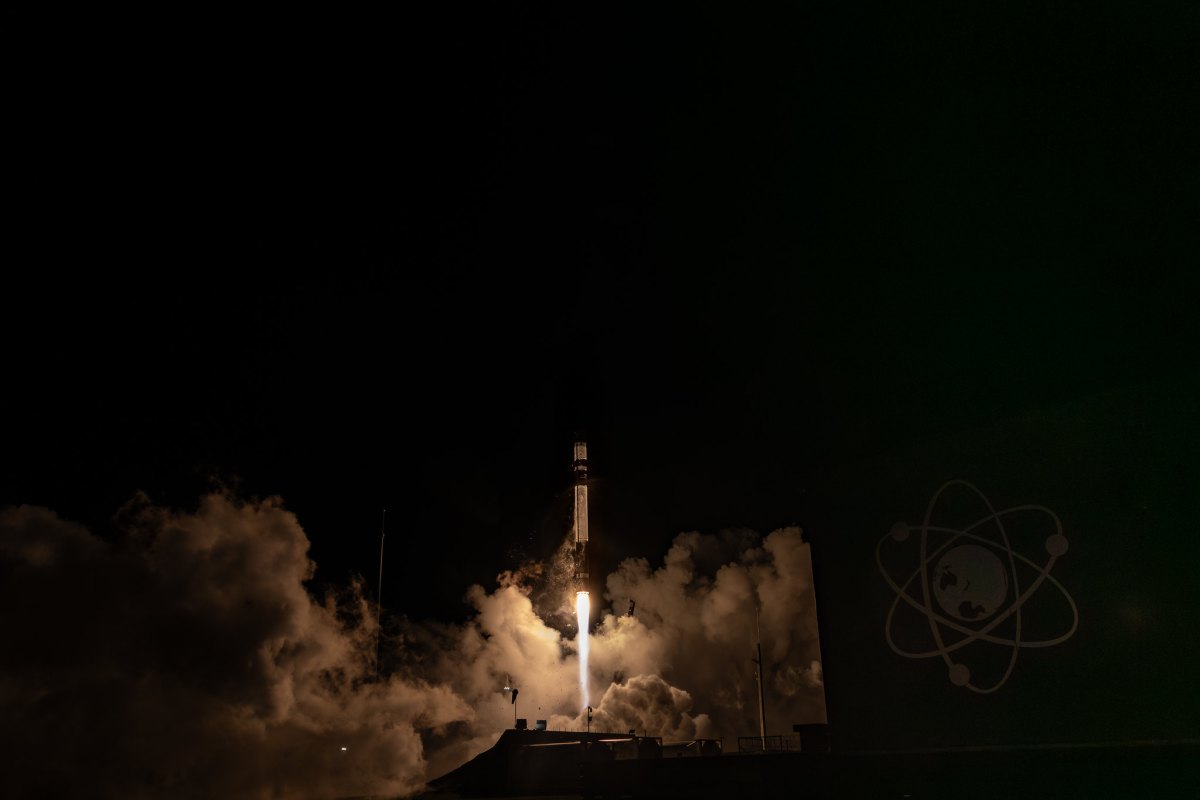WASHINGTON — Rocket Lab launched a Capella Space radar imaging satellite Aug. 11 on a mission that illustrated the flexibility offered by, but also the challenges facing, small launch vehicles.
The Electron lifted off from Pad B at Rocket Lab’s Launch Complex 1 in New Zealand at 9:18 a.m. Eastern after a two-hour delay caused by ground winds and a ship in restricted waters offshore. The rocket’s kick stage deployed its payload, the Acadia-3 satellite, nearly 57 minutes later into a 615-kilometer orbit inclined at 53 degrees.
Acadia-3 is a synthetic aperture radar (SAR) satellite also called Capella-13. The spacecraft is the fourth in the Acadia line of spacecraft, which feature improvements in SAR imaging capabilities over earlier versions, although one satellite was lost on a Electron launch failure in September 2023.
“Electron is a reliable constellation builder, providing precise and dedicated deployment to unique orbits that allows satellite operators like Capella to iteratively build out their constellation when and where they need to,” Rocket Lab Chief Executive Peter Beck said in a post-launch statement.
This satellite was scheduled to launch in July, but Rocket Lab announced several days before the original launch date that Capella Space had asked to delay the launch to perform more testing of the spacecraft. Rocket Lab instead launched another SAR satellite, from Japanese company Synspective, Aug. 2.
Rocket Lab hailed the swap as an example of the flexibility provided by Electron, as well as the ability to deliver payloads to specific orbits that are not feasible with rideshare missions. In an Aug. 8 earnings call to discuss the company’s second quarter financial results, Beck highlighted recent achievements like the back-to-back launches of NASA’s PREFIRE satellites and an earlier launch that placed two satellites into different orbits.
“All of this is exactly why customers choose Electron. It delivers a flexible service that small sats have never had before,” he argued.
That approach, though, also presents challenges. While the Capella Space launch was the second in less than 10 days for Rocket Lab, the company acknowledged on that earnings call it projects just one more Electron launch this quarter. It expects to perform 15 to 18 Electron launches this year, a record for the company but well short of the 22 it forecasted earlier in the year.
Rocket Lab says customer readiness is the reason it will far short of projections. “When we look at the manifest that we had coming into 2024, there hasn’t been a mission on that manifest that we couldn’t support from a production perspective. Any volatility we’ve seen versus that manifest has all been customer-delay ,” said Adam Spice, Rocket Lab’s chief financial officer, on the earnings call.
In the call, Beck told financial analysts that while the company only recognizes revenue when a launch takes place, the company receives milestone payments throughout the contract, so that it has received up to 90% of the contract value by the day of the launch.
“The most common metric we get held to is number of launches per quarter and the resulting point-in-time revenue recognition,” he said, which is guided by standard accounting practices. That, he argued, “can at times fail to reflect the underlying strengths in our business given the constructive cash flow nature of the launch business where we collect cash well in advance of revenue recognition.”
“That’s part of the business and why people pay us to get a premium to be on a dedicated small launcher versus being on a rideshare,” Spice said later in the call. “So, it’s kind of uncomfortable in one respect but also comforting in the other respect that people see value in that flexibility.”
Capella Space is a customer that has balanced both dedicated and rideshare launches. The company’s previous satellite launched in April on SpaceX’s first Bandwagon mid-inclination dedicated rideshare mission, which complements its popular Transporter series of sun-synchronous rideshare launches.
“For us, it’s about who can take our satellite to where we need to go in the most economical fashion,” said Frank Backes, chief executive of Capella Space, in an interview in April shortly after the Bandwagon launch. “If you can put me into exactly the right inclination at exactly the right altitude, I save fuel that might translate into six months more life in orbit. Six months pays for the launch.”
